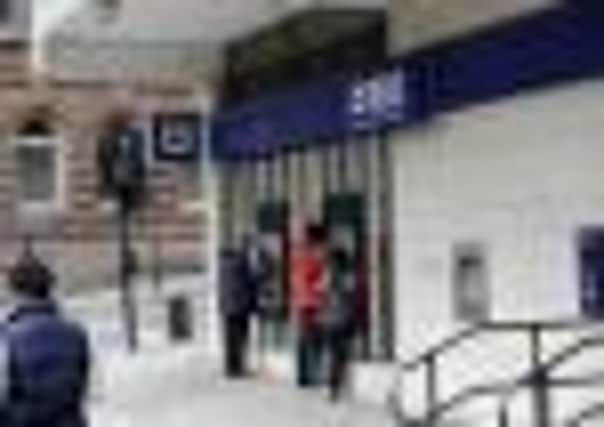RBS losses: Mis-selling scandal pay-outs mean bank losses hit £15 billion barrier


RBS was forced to take a further £310 million hit caused by a devastating IT meltdown and two mis-selling scandals that have added to recent woes and hampered Mr Hester’s five-year recovery plan.
Unveiling its latest figures yesterday the bank said the computer glitch in June that hit many customers would cost it £125m. But it warned the full cost of the failure, which is being investigated by an external counsel, could rise and a further update would be given later in the year.
Advertisement
Hide AdAdvertisement
Hide AdRBS unveiled a further £135m charge to cover the cost of payment protection insurance (PPI) mis-selling, bringing its total bill to £1.3bn, while it set aside £50m to compensate small businesses that were mis-sold complex interest rate protection products.
Mr Hester said the bank, which is 82 per cent owned by taxpayers, had made a lot of progress in cleaning up the overall business and returning to underlying profitability but added there “remains plenty left to do in a challenging environment”.
“We fell down on the job in the IT incident,” he said, adding significant cultural change was still needed in British banking, where there had too often been a record of “putting the company first and customers second”.
The half-year losses came with RBS still mired in the inquiry into the Libor inter-bank rate-rigging scandal that is the subject of wide-ranging regulatory probes around the world.
Mr Hester said he was limited in what he could say about the regulatory inquiry spearheaded in Britain by the Financial Services Authority. But he pledged the bank was “fronting up to the general situation”.
He said these were “wrenching times” for the bank and the industry, in terms of both reputation and financial performance, even though he believed the worst for RBS was behind it.
Regarding the Libor probe, which is expected to last most of this year at least, he said: “We will stand up and take any punishment that comes our way, as you would expect us to.”
He said he did not want to get drawn into any debate around nationalisation, after suggestions the issue had been discussed by government ministers. But he thought there were “cheaper ways than buying back all of RBS” if the government wanted to stimulate loans to higher-risk borrowers.
Advertisement
Hide AdAdvertisement
Hide AdHe suggested this could be done via government guarantees to banks in their lending and recent initiatives such as the Funding for Lending, scheme which will offer lower rates of interest to borrowers.
Highlighting RBS’s contention that the worst was behind it in its turnaround plan, the bank revealed operating profits in the first six months of this year came in at £1.83bn, slightly down on the £1.9bn in the first half of 2011.
Mr Hester said he did not know if speculation about the government considering full nationalisation of the bank was true. But he was dismissive of the idea, saying: “Some people in the government support nationalisation. They have not been talking to me or us about it. It is not a discussion we have been part of.” He added it was not the directors’ job to focus on the owners of the shares.
Responding to a question from the Financial Times reporter who wrote the nationalisation story, he said: “You obviously know more than I do.”
He added: “Our shareholders have to decide who wants to buy or sell us,” noting there had been a suggestion of splitting RBS into a Northern Rock-style “good” bank and “bad” bank.
He said there might have been an argument for fully nationalising RBS in 2009, but it seemed less understandable now when the worst was behind the bank as far as its safe recovery was concerned.
Sir Philip Hampton, RBS’s chairman, warned it might be very hard to pursue former bank directors for overall responsibility for any participation by traders in the Libor rate-fixing scandal. He said it was “notoriously difficult” to link the two in such cases, as a bank had to prove “serious wrongdoing, not just bad judgment”.
Hester said RBS had instituted a lot of management and cultural change to restore the bank’s reputation, but you could never guarantee there would be no other failures. “We turn over rocks and find new things we have to deal with.”
Advertisement
Hide AdAdvertisement
Hide AdRBS confirmed yesterday it had dismissed employees over the Libor scandal, although it declined to name them. The bank said: “The Libor situation is a stark reminder of the damage that individual wrongdoing and inadequate systems and controls can have in terms of financial and reputational impact.”
Sheridan Admans, investment research manager at The Share Centre, said RBS was paying the price of scandals such as the “computer glitch” and the PPI mis-selling debacle. “Investors should note the bank is now bracing itself for the next storm in the form of Libor related suits,” he said. “Customer trust is being tested to the fullest.”
The full results are available at www.investors.rbs.com/download/announcements/Interim_Results_2012.pdf